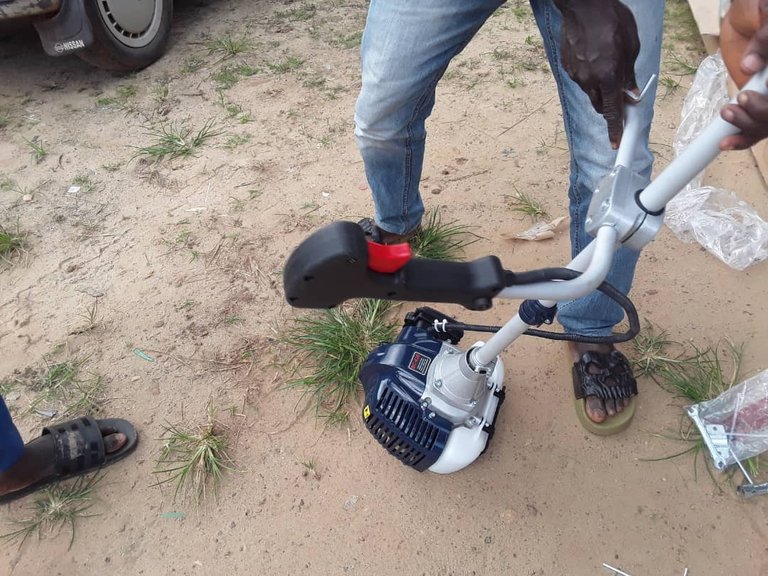As someone who is quite conscious of his environment, I always feel guilty when I am left with no option but to do something harmful to it. To me, harming the environment is like burning a bridge after crossing it. Generations after us may end up paying for damages that we have created, that is if we will not bear parts of the consequences ourselves.
The environment of my workplace is characterized by uncultivated lands which require regular maintenance to limit the danger of reptiles and other wild animals as well as increase the aesthetic appearance generally. Before assuming the head of administration, the usual practice was to use herbicide to control the weeds. Using herbicides to control weeds may seem easy and relatively cheaper than employing manual means, but it comes with its downsides. Most of these downsides are ecological and could damage the environment irreparably in the near future.

First is the likely effects of the chemicals on non-target organisms such as insects and other soil organisms. Of course, this particular effect has become greatly minimized through continuous research and the development of very narrow-spectrum herbicides. Second, is the potential for bioaccumulation by crops. Even though this particular issue may not apply to our situation as farming activities are not taking place in the vicinity of the establishment.
Another likely fallout from herbicide usage is their persistence in the environment due to the non-biodegradable nature of many herbicides. With their persistence, these chemicals eventually find their way into the food chain and this creates a major ecological problem within the chain. The chemicals are usually poisonous to living organisms either in small or accumulated quantities. This creates a disequilibrium in the population of living organisms and a disruption to the food chains in the environment.
Repeated usage of herbicides in the environment almost always leads to a shift in equilibrium as far as the different species of plants in the environment are concerned. This shift in population is brought about by natural selection. Susceptible plant species are easily wiped off by the chemicals while plants with inherent resistance begin to thrive in population and eventually take over the entire environment. At this point, environment managers either resort to stronger herbicides (with stronger consequences) or another method of getting rid of the weeds entirely.

With all these effects already known to me, I was able to convince the management to adopt another method of getting rid of the weeds in the environment - the mechanical method. This method requires the use of a hand mower. We purchased the hand mower for roughly $100. It was unboxed, coupled, and fueled before finally being put to use. It is not like this method is entirely safe for the environment because the machine requires the use of fossil fuel that emits greenhouse gases to the environment as well as the accompanying noise pollution. However, I think it is the lesser of the two evils.
Why do you think using a hand mower to get rid of weeds is ecologically safer than using herbicides? Let's start a discussion in the comment section.
All the images used in this post were taken using my Samsung Galaxy Tab A(2016).
Posted Using InLeo Alpha
Thanks for your contribution to the STEMsocial community. Feel free to join us on discord to get to know the rest of us!
Please consider delegating to the @stemsocial account (85% of the curation rewards are returned).
You may also include @stemsocial as a beneficiary of the rewards of this post to get a stronger support.